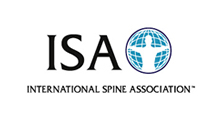
Spinecare Topics
The Back and Sleep
A good night’s sleep is important for the restoration and recovery of all tissues and systems of the human body, including the musculoskeletal system and the spine. Proper restorative sleep has been associated with hormonal and biochemical fluctuations that aid in the recovery of tissue. Restful sleep provides time away from physical activity that allows musculoskeletal tissues of the spine to recover from the prior days demands. It is extremely important to achieve adequate support of the spine (back) during the night. Poor support of the spine can contribute to recurrent or persistent back pain during the day and/or night.
There are many spinal conditions that can be made worse with poor sleep habits. Chronic fatigue due to a lack of restorative sleep contributes to back pain by lowering the pain threshold. Chronic generalized fatigue is associated with a greater risk for postural muscle fatigue that can increase strain upon the supportive tissues of the spine.
2 3
















